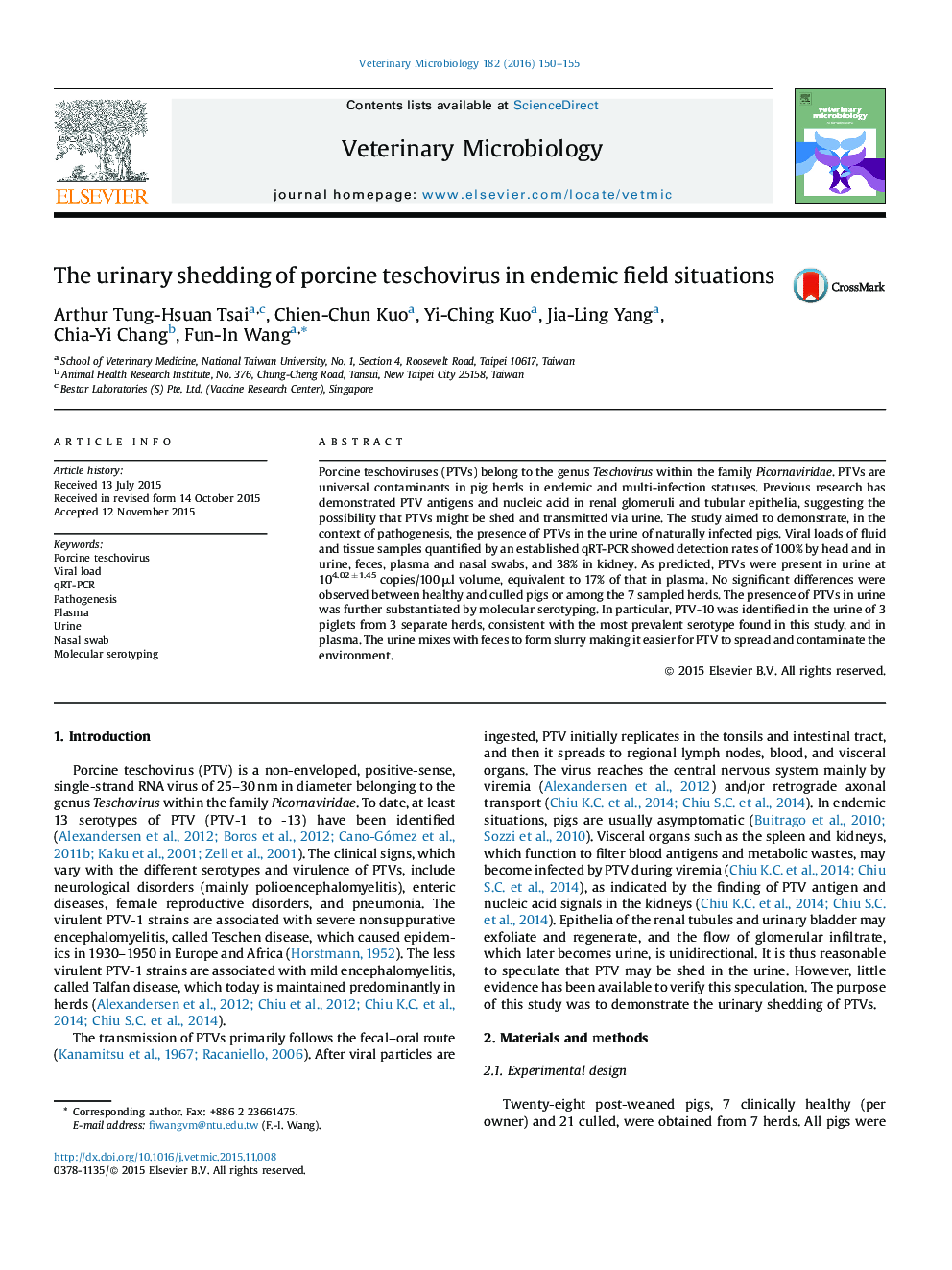| Article ID | Journal | Published Year | Pages | File Type |
|---|---|---|---|---|
| 2466495 | Veterinary Microbiology | 2016 | 6 Pages |
•In PTV endemic situations, all pigs have variable degrees of viremia.•PTVs infect kidney, likely during viremia, and later present in urine.•PTVs present in urine at 104 copies/100 μl, or 17% of that in the plasma.•PTV-10 was identified in urine of 3 pigs from 3 separate herds.•Urine mixes with feces to form slurry, facilitating the spread of PTVs.
Porcine teschoviruses (PTVs) belong to the genus Teschovirus within the family Picornaviridae. PTVs are universal contaminants in pig herds in endemic and multi-infection statuses. Previous research has demonstrated PTV antigens and nucleic acid in renal glomeruli and tubular epithelia, suggesting the possibility that PTVs might be shed and transmitted via urine. The study aimed to demonstrate, in the context of pathogenesis, the presence of PTVs in the urine of naturally infected pigs. Viral loads of fluid and tissue samples quantified by an established qRT-PCR showed detection rates of 100% by head and in urine, feces, plasma and nasal swabs, and 38% in kidney. As predicted, PTVs were present in urine at 104.02 ± 1.45 copies/100 μl volume, equivalent to 17% of that in plasma. No significant differences were observed between healthy and culled pigs or among the 7 sampled herds. The presence of PTVs in urine was further substantiated by molecular serotyping. In particular, PTV-10 was identified in the urine of 3 piglets from 3 separate herds, consistent with the most prevalent serotype found in this study, and in plasma. The urine mixes with feces to form slurry making it easier for PTV to spread and contaminate the environment.
